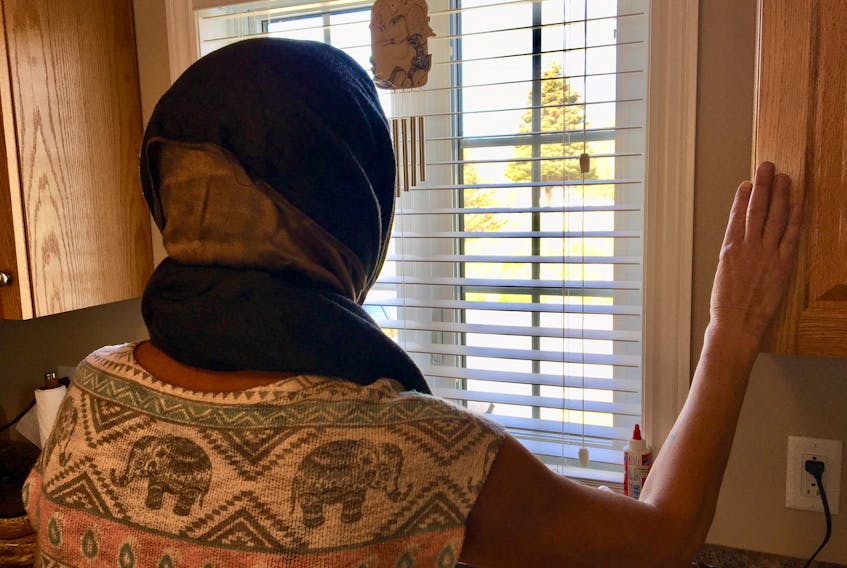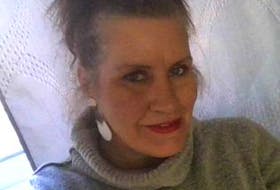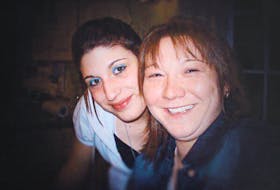Part 1 in a two-part series
She spent her first week behind bars curled up on her bed with her knees to her chest, sobbing.
In a cell at the Correctional Centre for Women in Clarenville no bigger than her bathroom at home, she learned pretty quickly to suck it up.
“My first cellmates told me weeks later, ‘You don’t know how many times I felt like coming over and snapping your neck just to shut you up,’” she said.
“After a while, I realized I’ve got to pull myself together if I’m going to get through this.”
The day before, on a cold fall day in 2016, Karen (not her real name) had been sentenced to a year in jail for a white-collar crime she does not wish to talk about publicly.
She is in her 50s and once held a good job, had a mortgage-free home, was an active community volunteer, had a loving family and never got so much as a parking ticket in her life.
“I sat there (in a provincial court holding cell) thinking, what the f--k has happened to me?” Karen said, sitting at home at her kitchen table in an outport that she doesn’t want identified.
“There had to have been a mistake, I thought. This can’t be happening to me. I was scared to death because I didn’t know what to expect in prison.”
It was beyond anything she could have imagined.
During her time behind bars, Karen experienced disturbing incidents and interacted with several disturbed women — many of them drug addicted and mentally ill, at the lowest point of their lives.
“Unless you see it yourself, you have no idea what it’s like in there,” she said. “I could write a book.”
She found herself housed among accused murderers and drug dealers.
Her roughly half a year in jail was enough to give her a sense of some major issues within the institution and an idea of what changes ought to be made.
She quickly discovered that much of the tension seemed to be the result of prisoners being taken off their medications by prison psychiatrist Dr. David Craig.
Karen said she was in a state of hysteria shortly after arriving, as Craig took away her Bromazepam, an anti-anxiety drug prescribed by her regular psychiatrist after several months of treatment.
“I had a complete mental breakdown after (being arrested) and my psychiatrist helped me get back on track and get my life back in order,” said Karen, who had been taking a business course at a community college while awaiting trial.
“But then Craig takes me off it — after meeting me for five minutes! Like, who the f--k are you? You don’t even know me or what I’ve been through! I was prescribed this because I needed it.
“It takes a long time for these drugs to come out of your system, so you know your body and your mind are going to react.”
She said it was the same for many other inmates, who were clearly suffering after having their medication stopped.
She got to know several inmates, many of whom opened up to her.
“One young girl there, her mother started prostituting her out when she was 14. By the time she was 16, she was a drug addict,” Karen said. “It would break your heart to listen to some of their stories. … The public just hears about their crimes. But they’re real people with sad stories.”
One of those was Wanda Ash — one of two women later found guilty of manslaughter in the 2013 stabbing death of Jason Skinner and sentenced to 5 ½ years in prison. Karen didn’t find her to be the cold-blooded killer the public might think she is.
But the most alarming observation Karen made was that there were many inmates who seemed not to be of sound mind and who did not belong there. Several, she said, were clearly suffering from mental health issues and she felt they should have been in a hospital psychiatric unit, not a prison.
One of those people, she said, was Anne Norris — the St. John’s woman who had been accused of first-degree murder for allegedly beating Marcel Reardon to death with a hammer on May 9, 2016.
Karen shared a cell with Norris for a few months and built a rapport with her.
“I thought the world of Anne. I couldn’t even watch media coverage of her trial. When it came on TV, I sat on the chesterfield and cried to break my heart,” Karen said, pulling her coffee cup on the table closer to her.
“People would ask me, how the hell did I (share a cell with Norris), but I’d always say to them, she’s somebody’s daughter. She’s somebody’s child.”
She described Norris as childlike and warm-hearted, a woman who seemed lost and clearly had mental health issues.
“Anne would lie on my lap in the cell and I would stroke her hair and she would cry. She said, ‘Karen, me and you are going to do lunch someday and then go shopping.’ She’d say, ‘I’m going to get married someday.’”
Though she admitted in February to killing Reardon, Norris was found not criminally responsible for his death and was sent to a psychiatric facility.
It was only in Karen’s last week at the facility — when Norris got wind that Karen was going to be released on parole — that her demeanor changed, she said.
“She started to get different. I was little afraid. I didn’t think she would hurt me, but she started telling people I was trying to poison her. Anne wasn’t stable, but I knew that from the first time I met her. She’d be sweet one day. The next minute she would turn on you,” she said.
“I’m not a psychiatrist or psychologist, but that young girl, to me, had her childhood, her teenage years, taken from her and it really affected her (psychologically).”
Part 2: ‘They’re left to fend for themselves’ in Clarenville prison, former inmate says
Twitter: TelyRosie









